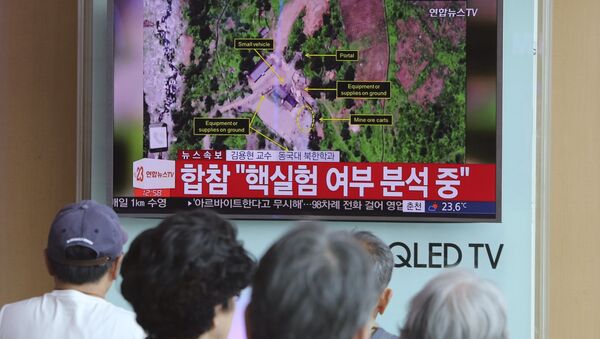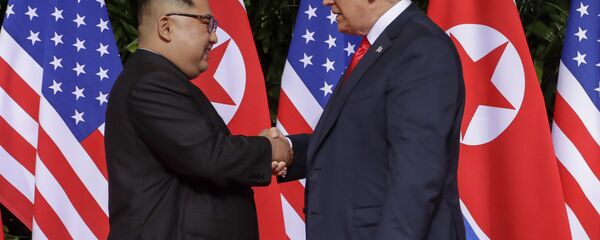Obtained by Reuters on Monday, the report claims that UN monitors had "found evidence of a consistent trend on the part of the [Democratic People's Republic of Korea] to disperse its assembly, storage and testing location."
The UN report explained that Pyongyang was using "civilian facilities, including airports, for ballistic missile assembly and testing with the goal of effectively preventing ‘decapitation strikes' on a smaller number of identified nuclear and missile assembly and manufacturing sites."
Additionally, it stressed that the DPRK was continually ignoring UNSC resolutions through its "illegal ship-to-ship transfers of petroleum products and coal." The Security Council has repeatedly imposed sanctions on North Korea since 2006, when the country first conducted a nuclear test. North Korea has since run five additional nuclear tests.
"These violations render the latest UN sanctions ineffective," reads the memo, referring to the council's past eight resolutions that banned the country's exports of coal, crude oil, refined petroleum and lead, among others.
Furthermore, the report accused Pyongyang of violating a UN arms embargo and using "cyberattacks to illegally force the transfer of funds from financial institutions and cryptocurrency exchanges" in order to bypass financial sanctions.
As the country was also hit with a ban on luxury goods, UN investigators will be looking into the sighting of a "relatively new" Rolls-Royce Phantom limousine that appeared in Pyongyang on October 7, 2018.
This latest development comes weeks before US President Donald Trump is expected to meet with North Korean leader Kim Jong-un for their second summit. It has been reported that the meeting could be held in the Vietnam later this month.
Stephen Biegun, the US special envoy for North Korea, is scheduled to hold preparatory talks with North Korean counterparts on Wednesday in Pyongyang, the US State Department revealed on Monday.



